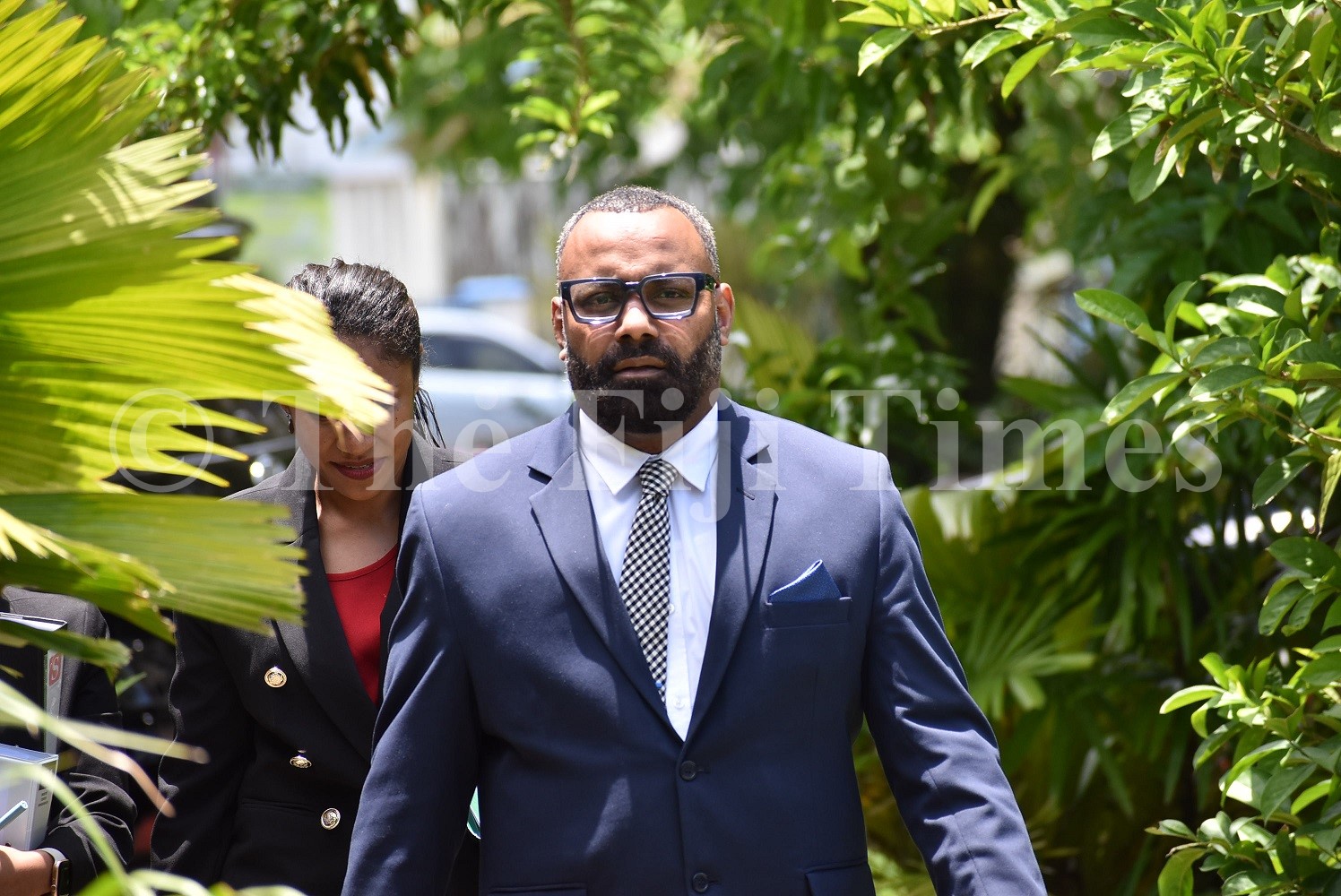FIGHTING drug trafficking needs political will, says Deputy Director of Public Prosecutions John Rabuku.
At the recent Fiji Law Society convention in Nadi, Mr Rabuku highlighted the challenges authorities faced in the battle against ongoing transnational movement of illicit drugs.
“With the Office of the DPP sitting at the end of the justice system and watching its back, this is what we are seeing is if we can increase our border surveillance and strengthen it with our Pacific neighbours, including Australia and New Zealand, who really are the consumers of the large amount of drugs coming in,” said Mr Rabuku. “It needs political will.
“For the longest time, we have had two navy boats.”
Mr Rabuku recalled his experience with gathering evidence in the lead-up to the trial of convicted drug trafficker Justin Ho, who masterminded the smuggling of 4.1 tonnes of meth into Fiji.
“In the 4.1 tonnes of drugs case, when we went to the (Fiji) Navy, they told us, ‘we are sorry, Mr Rabuku, we can’t even plot the coordinates’.
“I asked ‘why can’t we send out a Navy boat?’. They said ‘we have only two Navy boats’.
“To send out on a tour around Fiji costs between $160,000 and $180,000.
“So, it is the resources, and it really needs political will.”
Mr Rabuku said if a minister is committed to fighting drugs, then resources should be given to State agencies controlling Fiji’s internal and external borders.
“If you have a minister who is focused on this and says, ‘yes, we want to fight drugs’, then we need to start with the borders.
“We need to strengthen them, and we need to pump more money into the Navy and into the enforcement agencies.”
ODPP: Cartels infiltrate border agents
INTEGRITY issues within border control agencies have been witnessed in the courtroom, says Deputy Director of Public Prosecutions John Rabuku.
“We know for the longest time now we are beginning to see our enforcement agencies being infiltrated by the cartels,” said Mr Rabuku.
“They find a weak person, they pay him off and he turns a blind eye.”
Mr Rabuku said these integrity issues have resulted in officers from other jurisdictions coming in to work on a drug case.
“We need to get back to teaching our enforcement agencies, which include the police, the Customs officers and everyone who is responsible for our borders internally or outside of Fiji that you should learn to see what the crime is and deal with it instead of turning a blind eye. Because it has also come up in court.
“We ask them, ‘why are you involved in this case when you are from that particular jurisdiction?’ “They say, ‘we don’t trust the enforcement agency in that particular jurisdiction’.”
Mr Rabuku said capacity building for law enforcement was an important part of addressing this problem.
“So, with me, it really comes down to two things, strengthening our borders so that the people who control our borders work honestly day in and day out, so that these drugs do not come in.
“This basically means money that the Government needs to pump in, and we go back to the basics of integrity.”
Police seek more powers
THE Fiji Police Force is hoping for more powers to deal with transnational and organised crime.
Assistant Police Commissioner Crime Mesake Waqa said this was part of their submissions towards the review of the Police Act 1965.
“We had just done our submissions (October 27) whereby part of it was giving more powers to law enforcement and on how we can do things,” said ACP Waqa.
“We considered modern technology we’re experiencing and the human rights of the people of Fiji as we made these submissions.
“The first draft has been out, and we hope that the new Police Act provides some authority that was not with us before.
“We hope it is going to be given to us under the new Act to counter transnational and organised crime and also overall crime in Fiji.”
ACP Waqa said the police force would like to see the regulation of over-the-counter drugs used in cooking methamphetamine and the sale of syringes to minors.
“In Fiji, I would say there is a legislation gap.
“I would say we need to look at the control mechanism or a framework through which we can control the pharmaceuticals in availing meth precursors readily available over the counter.
“And the sale of other items like syringes. For example, if a youth comes in and buys syringes, what does that say? Does a youth need to buy a syringe? “Those are some of the things that we need to have control over.”



